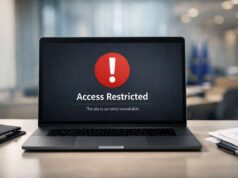Pakistan has formally opened its doors to the global digital asset industry, inviting international crypto firms to apply for licensing under its new Virtual Assets Ordinance 2025. The move marks a decisive break from the country’s history of bans and grey-market activity. Instead of uncertainty, the government is now offering a regulated framework designed to attract investment and protect millions of users.
The initiative is led by the newly established Pakistan Virtual Assets Regulatory Authority (PVARA), which began operating in July. Setting up a licensing system, Islamabad hopes, will transform one of the world’s largest informal crypto markets into a regulated sector while aligning it with international compliance standards. With an estimated 40 million crypto users and annual trading volumes of around $300 billion, Pakistan is positioning itself as a serious player in the South Asian digital economy.
A Regulatory Framework Built for Global Standards
The Pakistan crypto licensing program sets clear criteria for applicants. Only global crypto exchanges and service providers already regulated by top-tier jurisdictions, including the US, UK, EU, UAE, and Singapore, are eligible. Applicants must disclose their existing licenses, company profiles, compliance records, financial statements, and a detailed business plan tailored to the Pakistani market.
Firms will also need to demonstrate robust AML and KYC compliance, advanced cybersecurity measures, and consumer protection mechanisms. According to PVARA, this structure is meant to reassure both international watchdogs and local users that licensed firms will operate transparently and responsibly. Importantly, the government argues that this framework reflects a new era of Pakistan crypto regulation. It prioritizes oversight while encouraging innovation.
New Opportunities for Global Firms
For international players, the program offers entry into a large but underserved market. Pakistan is one of the top countries in crypto adoption by population. However, its market remains dominated by peer-to-peer trading and offshore platforms that operate without oversight. By applying for a local license, crypto firms in Pakistan gain legitimacy, banking access, and the ability to serve millions of retail and institutional investors through regulated channels.
The open-ended application process also allows firms to submit proposals on a rolling basis. This flexibility means that global exchanges can design market entry strategies at their own pace. The Pakistan crypto licensing system is being promoted as a gateway for companies that want to expand into South Asia’s fast-growing fintech sector.
Impact on Users and Investors
For Pakistani users, the arrival of licensed crypto services could be transformative. Millions of citizens rely on digital assets for crypto remittances, savings, or trading. Yet they often do so through unregulated and risky platforms. A licensed framework promises safer custody, fraud prevention, and potential innovation in areas such as Shariah-compliant crypto products.
Institutional investors and fintech startups may also benefit. With clearer rules, domestic innovation becomes easier, while foreign partnerships are more likely to emerge. By integrating crypto activity into the financial system, regulators aim to support financial inclusion and provide alternatives to the country’s underbanked population.
Challenges Ahead
The shift to regulated crypto services will not be without challenges. Pakistan’s banking infrastructure remains cautious toward digital assets, and compliance with FATF and IMF guidelines will be closely scrutinized. Moreover, execution risks loom large, as previous attempts at financial reform have stumbled due to bureaucracy and political instability.
>>> Read more: Kyrgyzstan Passes Sweeping Crypto Law: Reserve & Mining
Still, the creation of PVARA and the invitation to global crypto firms signal a major policy realignment. If implemented effectively, Pakistan’s crypto regulation could not only secure domestic users but also position the country as a potential South Asia crypto hub, competing with regional leaders like Dubai and Singapore. The government hopes that Pakistan’s crypto licensing will become a catalyst for foreign investment, safer digital adoption, and long-term economic modernization.
Readers’ frequently asked questions
How can international crypto firms start the application process in Pakistan?
Interested firms must submit applications to the Pakistan Virtual Assets Regulatory Authority (PVARA) with company details, existing licenses, compliance history, financial records, and a Pakistan-specific business plan. The process is open-ended and handled on a rolling basis.
Will local Pakistani startups also be able to apply for licenses?
For now, PVARA is prioritizing global firms already licensed in major jurisdictions. Domestic companies may be considered in later phases, once the framework for international players is firmly established.
What changes should users expect once licensed exchanges begin operating?
Users can expect stronger security and transparency, as licensed platforms are required to adhere to strict consumer-protection standards. Over time, this may also support Shariah-compliant digital investments and regulated crypto remittance services, reducing reliance on risky peer-to-peer channels.
What Is In It For You? Action items you might want to consider
Monitor which global exchanges apply for licenses
Keep track of announcements from major platforms such as Binance, Coinbase, or regional players in the UAE and Singapore. Their participation will signal how attractive Pakistan’s framework is to international firms.
Evaluate opportunities in regulated remittance and custody services
With Pakistan being one of the largest remittance markets, licensed exchanges could reshape how money flows into the country. Traders, fintech builders, and investors should watch for new custody products and regulated crypto remittance channels.
Track local adoption and regulatory follow-through
Even with licensing in place, execution will be key. Watch how banks, payment providers, and startups adapt to PVARA rules. Early signs of user adoption and institutional integration could indicate whether Pakistan is on its way to becoming a South Asia crypto hub.











[…] >>> Read more: Pakistan Opens Crypto Licensing to Global Firms […]